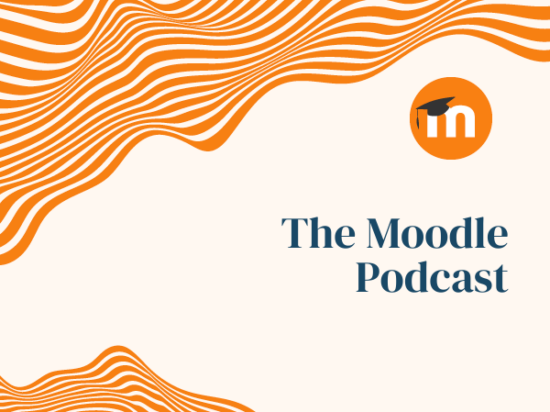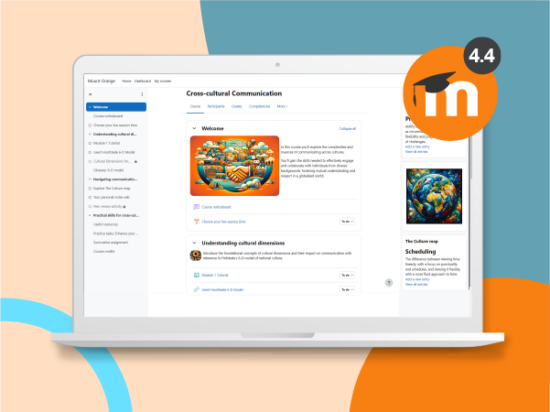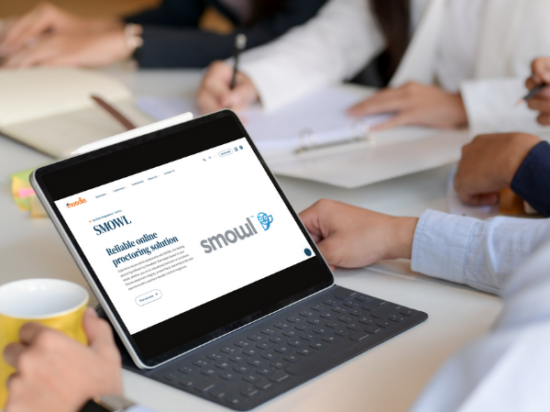Have you heard of Learn Moodle?
It’s a free, four-week MOOC run by Moodle HQ, designed for anybody who wants to use the Moodle learning platform. We also run the MOOCs twice a year, after every major Moodle release.
Our Learn Moodle 3.4 MOOC Basics is starting on 8 January 2018 and recently we talked to Mary Cooch, our Community Educator and Elizabeth Dalton, our Research Analyst, to tell us what’s new for this upcoming MOOC.
If you’re a newbie or long time Moodler, you might wonder: “What should I participate in this MOOC?” “What will I get out of the four week course?” “What is involved in the MOOC?”
Well, we speak to long-term Learn Moodle participant, John Bennett, to get his perspective on some of those questions you might be asking!
Moodle HQ: Thanks for taking the time to talk to us about your Learn Moodle experiences John.
Are you able to let us know a bit about yourself and your involvement with Moodle, our open source project and our global community?
John: Thank you for asking me. My involvement with Moodle began in Russia in 2007 when I was asked to investigate the opportunities for developing e-learning within the company – a language school offering a number of different language and employing in excess of 220 teachers. I was the school principal at the time. I tried out a number of course management systems and finally chose Moodle as being the best of the bunch. I underwent training with a Certified Moodle Partner and the rest is history. Moodle is definitely the best and thanks to it we were able to carry out joint projects with the state schools system and even with CUP.
Moodle HQ: When did you first join in Learn Moodle and what was your motivation to participate in the MOOC?
John: I first took part in the Learn Moodle MOOC in August 2015 and have participated in every LMM since then. I was and am very impressed with both the courses and the dedicated team who make it such a wonderful experience. My reasons for joining the 2015 LMM were that I had been working with Moodle in isolation since 2007 and felt the need for a refresher and an update of my knowledge. In addition, I wanted to make some contacts in the Moodle world.
Moodle HQ: What do you enjoy most about Learn Moodle MOOC when you first participated and as you continue to be part of it over the years?
John: I learned a lot on that first Learn Moodle MOOC and met a lot of interesting people as I had hoped. I like the interaction between participants and have become a kind of unofficial helper in the forums.
Moodle HQ: What do you think are the opportunities or benefits that come out of participating in Learn Moodle MOOC?
John: Obviously, the opportunity to keep up to date with the latest Moodle version, to feel a part of the Moodle community and to meet and help interesting people. I am currently a Moodle admin on four of sites including two of my own. I am also just getting involved in a project to help refugees to learn languages and to train volunteers through Moodle.
Moodle HQ: Now, you’ve consistently joined and supported our MOOCs. Who do you think should participate in our MOOC and why?
Also, why should people return to do the MOOCs like you have, almost every session?
John: Anyone that has an interest in e-learning or training – not just teachers and trainers but materials writers, course developers etc. I think that the Learn Moodle MOOC is a great model for what a course should be like.
For the same reason that I attend them, to keep up to date – Moodle is constantly evolving.
You didn’t ask, but many participants, myself included, would love it if you were to add a more advanced Learn Moodle.
Thanks to you and to everyone at Moodle for working so hard to produce the best LMS.
If you would like to join John at the next Learn Moodle MOOC, sign up today or follow @LearnMoodle on Twitter for all the latest updates!
Want to know more about Learn Moodle MOOC?
Read through some of our previous Learn Moodle articles:



